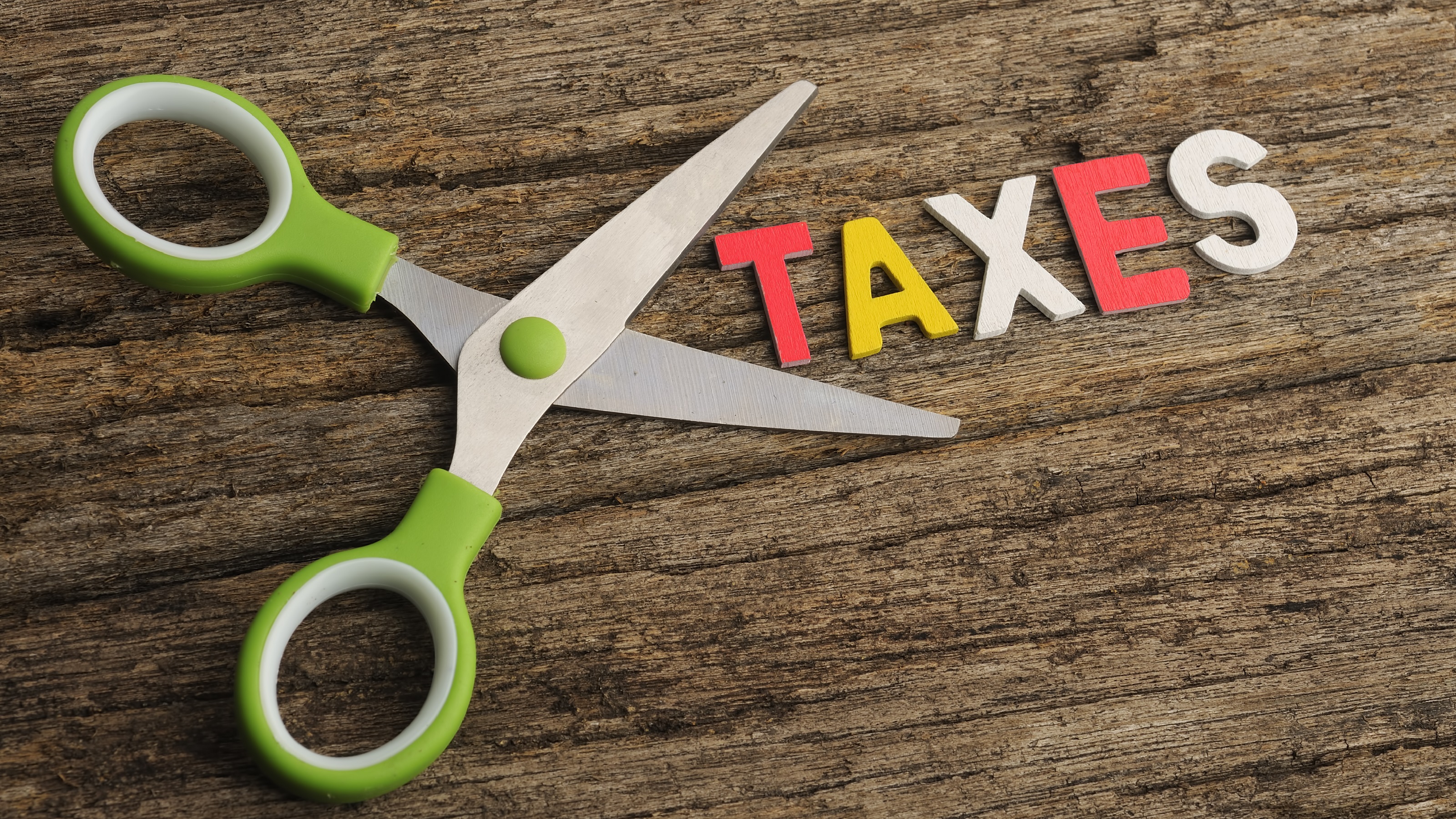Six Ways High-Income Earners Can Optimize Their Tax Strategy
Reduce your tax liabilities by following these expert-recommended tips.


Profit and prosper with the best of Kiplinger's advice on investing, taxes, retirement, personal finance and much more. Delivered daily. Enter your email in the box and click Sign Me Up.
You are now subscribed
Your newsletter sign-up was successful
Want to add more newsletters?

Delivered daily
Kiplinger Today
Profit and prosper with the best of Kiplinger's advice on investing, taxes, retirement, personal finance and much more delivered daily. Smart money moves start here.

Sent five days a week
Kiplinger A Step Ahead
Get practical help to make better financial decisions in your everyday life, from spending to savings on top deals.

Delivered daily
Kiplinger Closing Bell
Get today's biggest financial and investing headlines delivered to your inbox every day the U.S. stock market is open.

Sent twice a week
Kiplinger Adviser Intel
Financial pros across the country share best practices and fresh tactics to preserve and grow your wealth.

Delivered weekly
Kiplinger Tax Tips
Trim your federal and state tax bills with practical tax-planning and tax-cutting strategies.

Sent twice a week
Kiplinger Retirement Tips
Your twice-a-week guide to planning and enjoying a financially secure and richly rewarding retirement

Sent bimonthly.
Kiplinger Adviser Angle
Insights for advisers, wealth managers and other financial professionals.

Sent twice a week
Kiplinger Investing Weekly
Your twice-a-week roundup of promising stocks, funds, companies and industries you should consider, ones you should avoid, and why.

Sent weekly for six weeks
Kiplinger Invest for Retirement
Your step-by-step six-part series on how to invest for retirement, from devising a successful strategy to exactly which investments to choose.
When it comes to taxes, having a higher income may not always be the blessing it’s often thought to be. With a bigger income comes increased tax rates, as moving into a higher tax bracket means a larger portion of income will be taxed at a higher rate. Those earners with multiple streams of income — investment income, capital gains, bonuses and more — can further complicate their taxes.
These factors, paired with the possibility of losing out on certain deductions or credits due to their income, mean high-income earners are often on the lookout for ways to optimize their tax strategy and minimize their tax liabilities, or what they owe.
As financial and tax experts themselves, the members of Kiplinger Advisor Collective know the ins and outs of effective tax strategies. Here, they offer up six ways high-income earners can minimize their tax liabilities and keep more money in their pockets.
From just $107.88 $24.99 for Kiplinger Personal Finance
Become a smarter, better informed investor. Subscribe from just $107.88 $24.99, plus get up to 4 Special Issues

Sign up for Kiplinger’s Free Newsletters
Profit and prosper with the best of expert advice on investing, taxes, retirement, personal finance and more - straight to your e-mail.
Profit and prosper with the best of expert advice - straight to your e-mail.
Maximize contributions to tax-advantaged accounts
“High-income earners can optimize their tax strategy by maximizing contributions to tax-advantaged accounts like 401(k)s, IRAs or health savings accounts (HSAs). This reduces taxable income, lowering their overall tax burden. It’s effective because it not only provides immediate tax savings, but it also allows wealth to grow tax-deferred, enhancing long-term financial planning and retirement savings.” — Stephen Nalley, Black Briar Advisors
Sell investments that have depreciated
“Selling investments that have depreciated since you bought them, also known as tax-loss harvesting, can help you lower your tax burden each year. These losses can also be deducted from your investment gains or other income, up to an annual limit set by the IRS. If your losses are greater than these limits, you can carry them over to the following year to reduce your taxes in future years.” — Justin Donald, Lifestyle Investor
Choose a fee-only CFP
“The development of software analysis tools that can provide an integrated and holistic view of your financial situation, including how your tax liabilities affect the rest of your financial life, has increased significantly. Choosing the right fee-only Certified Financial Planner (CFP®) who offers a cost-effective way to integrate sophisticated and holistic tax planning strategies with financial planning is critical.” — Deborah W. Ellis, Ellis Wealth Planning
Take a three-pronged approach
“There are three important areas to consider for tax efficiency. Deferring taxes: Utilize preferential accounts such as 401(k)s, IRAs and annuities. Managing existing investment income: Place tax-inefficient assets in tax-deferred accounts, harvest tax losses and manage gains and distributions. Reducing future taxes: Use Roth IRAs, health savings accounts, 529s and municipal bonds to limit future taxes.” — Stephen Kates, Annuity.org
Minimize portfolio turnover
“Maximizing tax-advantaged savings to your retirement plan or health savings accounts can reduce your taxable income. Take advantage of charitable contributions, and minimize turnover in your portfolio by investing in transparent, diversified and tax-efficient exchange-traded funds (ETFs).” — Marguerita Cheng, Blue Ocean Global Wealth
Consider your highest-income years
“Explore depreciation. Often, high-income earners get to participate in depreciation on assets bought with debt. Plan for this in your highest-income years to maximize the benefit.” — Justin Brock, Bobby Brock Insurance
Related Content
- Three Tips for Selling Your Business and Getting the Most Value
- Five Ways to Minimize a Higher Capital Gains Tax Rate
- How Tax-Loss Harvesting Helps to Lower Your Tax Bill
- The IRS is Ramping up Tax Audits
The information provided here is not investment, tax or financial advice. You should consult with a licensed professional for advice concerning your specific situation.
Profit and prosper with the best of Kiplinger's advice on investing, taxes, retirement, personal finance and much more. Delivered daily. Enter your email in the box and click Sign Me Up.
Kiplinger Advisor Collective is the premier criteria-based professional organization for personal finance advisors, managers, and executives.
-
 Quiz: Do You Know How to Avoid the "Medigap Trap?"
Quiz: Do You Know How to Avoid the "Medigap Trap?"Quiz Test your basic knowledge of the "Medigap Trap" in our quick quiz.
-
 5 Top Tax-Efficient Mutual Funds for Smarter Investing
5 Top Tax-Efficient Mutual Funds for Smarter InvestingMutual funds are many things, but "tax-friendly" usually isn't one of them. These are the exceptions.
-
 AI Sparks Existential Crisis for Software Stocks
AI Sparks Existential Crisis for Software StocksThe Kiplinger Letter Fears that SaaS subscription software could be rendered obsolete by artificial intelligence make investors jittery.
-
 I'm an Opportunity Zone Pro: This Is How to Deliver Roth-Like Tax-Free Growth (Without Contribution Limits)
I'm an Opportunity Zone Pro: This Is How to Deliver Roth-Like Tax-Free Growth (Without Contribution Limits)Investors who combine Roth IRAs, the gold standard of tax-free savings, with qualified opportunity funds could enjoy decades of tax-free growth.
-
 I'm a Real Estate Investing Pro: This Is How to Use 1031 Exchanges to Scale Up Your Real Estate Empire
I'm a Real Estate Investing Pro: This Is How to Use 1031 Exchanges to Scale Up Your Real Estate EmpireSmall rental properties can be excellent investments, but you can use 1031 exchanges to transition to commercial real estate for bigger wealth-building.
-
 4 Pro Tips for Successfully Scaling the Medicare Mountain
4 Pro Tips for Successfully Scaling the Medicare MountainAttempting to conquer Medicare without a plan is risky. The safest route requires a thorough understanding of your options and never leaves decisions to chance.
-
 For More Flexible Giving, Consider Combining a Charitable Remainder Trust With a Donor-Advised Fund
For More Flexible Giving, Consider Combining a Charitable Remainder Trust With a Donor-Advised FundIf a charitable remainder trust puts too many constraints on your family's charitable giving, consider combining it with a donor-advised fund for more control.
-
 The Illinois 'Cliff Tax': A Single Dollar Could Cost Families Hundreds of Thousands
The Illinois 'Cliff Tax': A Single Dollar Could Cost Families Hundreds of ThousandsIllinois' estate tax "threshold" (rather than "exemption") can surprise families, but proactive planning can help preserve more for heirs and charitable causes.
-
 These Thoughtful Retirement Planning Steps Help Protect the Life You Want in Retirement
These Thoughtful Retirement Planning Steps Help Protect the Life You Want in RetirementThis kind of planning focuses on the intentional design of your estate, philanthropy and long-term care protection.
-
 The 5 Biggest Tax Mistakes New Retirees Make in the First 5 Years
The 5 Biggest Tax Mistakes New Retirees Make in the First 5 YearsMaking the wrong tax moves in the first few years of retirement can be costly for you and your heirs. These are the five biggest mistakes to avoid.
-
 Inherited an IRA? Don't Fall Into the 10-Year Tax Trap
Inherited an IRA? Don't Fall Into the 10-Year Tax TrapRules on inherited IRAs have tightened, and most non-spouse beneficiaries must empty the pot in 10 years or face stiff penalties. That calls for an action plan.
